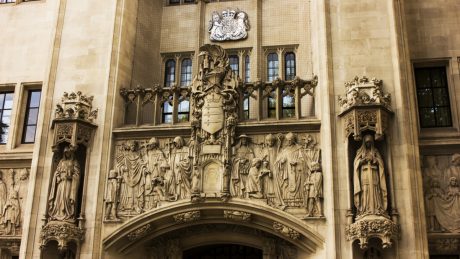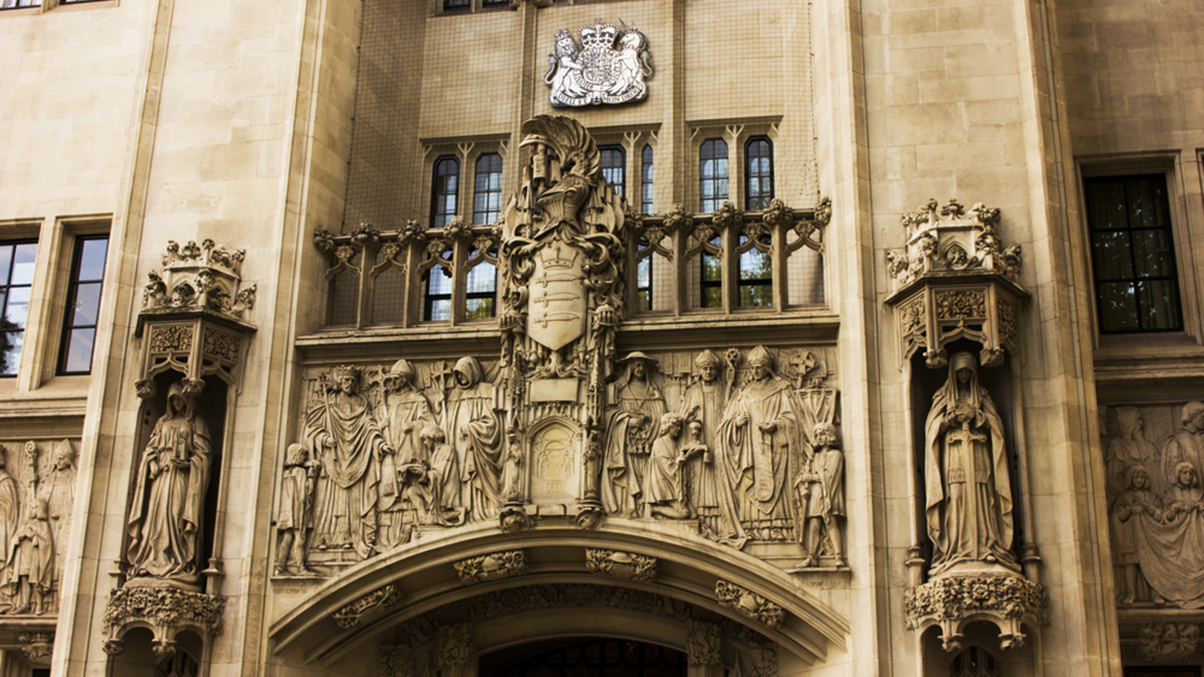When should an arbitrator disclose circumstances that may give rise to justifiable doubts as to their impartiality? The Supreme Court’s long-awaited judgment in Halliburton Company v Chubb Bermuda Insurance Ltd [2020] UKSC 48 handed down today has answered this question.
In what many commentators forecast would be a decision going to the heart of London’s continuing attractiveness as a global centre for arbitration, the Supreme Court has reiterated that an arbitrator is under a duty to make disclosures of matters that might reasonably give rise to justifiable doubts as to their impartiality.
This article sets out a brief history to the dispute, summarises the findings of the Supreme Court and offers some thoughts on the importance and impact of the judgment upon international commercial arbitration practice in London.
The arbitration
The underlying dispute arose out of the Deepwater Horizon disaster in April 2010. Halliburton, (an oilfield service provider sued in relation to its involvement in the disaster), commenced an arbitration against Chubb following a refused insurance claim. Its claims in the arbitration were pursued under a New York law governed policy with London-seated ad hoc arbitration under the Arbitration Act 1996 (the “Act”) prescribed. In default of agreement between the parties as to the third member of the arbitral tribunal, the English High Court was charged with making the appointment. Following a contested application, the High Court selected a candidate (the “Tribunal Chair”), who was one of a number of possible candidates proffered by Chubb.
The Tribunal Chair’s appointments
By the time of his appointment, the Tribunal Chair had disclosed that he had previously received several appointments by Chubb and that he was currently appointed as arbitrator in two pending arbitrations in which Chubb was a party. This was not deemed to be an obstacle to his being appointed by the court in respect of the Halliburton arbitration. The Supreme Court noted that Halliburton’s objections to the Tribunal Chair at the time of his appointment focused on the fact that he was an English lawyer rather than a New York lawyer, given that the governing law of the subject policy was New York law.
After being appointed, the Tribunal Chair accepted two further appointments:
- In December 2015, he accepted an appointment by Chubb in a “second arbitration” in which the owner of the Deepwater Horizon rig (Transocean) pursued claims under materially the same policy terms as that founding the arbitration between Chubb and Halliburton. The same law firm was acting for Chubb in both the Halliburton and the second arbitrations, which (substantially) concerned the approach of Chubb in declining to cover the claimed losses, (which were decisions that had been made in each case by the same Chubb employee).
- In August 2016, he accepted appointment in a “third arbitration” in which Transocean pursued claims in respect of Deepwater Horizon against a separate insurer.
The Tribunal Chair did not make a later disclosure of his participation in the second or third arbitrations. Halliburton learned of these appointments in November 2016 (at around the time the tribunals in the second and third arbitrations were to hear preliminary issues in those cases). While the Tribunal Chair admitted that with the benefit of hindsight it would have been “prudent” for him to disclose to Halliburton his further appointments, he declined to resign. Halliburton applied to the High Court for the Tribunal Chair’s removal as an arbitrator under section 24(1)(a) of the Act.
The High Court claim
Halliburton’s application was premised on the Tribunal Chair’s conduct having given rise to an appearance of bias because:
- The Tribunal Chair had accepted the appointments in the second and third arbitrations.
- The Tribunal Chair had failed to disclose to Halliburton his appointments in the second and third arbitrations.
- The Tribunal Chair had responded inadequately to Halliburton’s complaints when raised by it in correspondence from November 2016 onwards.
The High Court applied the applicable common law test for apparent bias: would the fair-minded and informed observer, having considered the facts, conclude that there was a real possibility that the tribunal was biased? Mr Justice Popplewell concluded there was no bias, saying: “[…] none of the grounds advanced, whether individually, or cumulatively, establish any circumstances which give rise to any justifiable doubts as to the Tribunal Chair’s impartiality”.
The consideration of the Court of Appeal
On appeal, the Court of Appeal considered the following interrelated issues:
- Can an arbitrator accept appointments in multiple arbitrations that concern the same or overlapping subject matter, but with only one common party, without that acceptance amounting to an appearance of bias? If he can, to what extent can he accept such appointments?
- Can an arbitrator accept such appointments without disclosure, and if he can, to what extent (if any) is that non-disclosure limited?
Related to the second issue was the matter of timing: when should an arbitrator disclose circumstances which may give rise to justifiable doubts as to his impartiality? And further: what should the consequences be for failing to disclose circumstances that should have been made?
Regarding the first issue, the Court of Appeal held that the mere fact of appointment in related arbitrations with one common party would not alone justify an inference of apparent bias; “something of substance” would also be required to justify such an inference. That “something” was not, in the court’s view, present in the appointment of the Tribunal Chair or subsequent events.
Regarding the second issue, the Court of Appeal concluded that the Tribunal Chair ought to have disclosed to Halliburton his further appointments at the time they were made both as a matter of good practice and as a matter of law. Having found the Tribunal Chair in breach of good practice and law, the court stated that the proper question was then whether his non-disclosure, taken together with any other relevant factors, would have led a fair-minded and informed observer, having considered the facts, to conclude that there was a real possibility that the Tribunal Chair was biased? The court’s answer to that question was “no” on various grounds. These included the grounds that:
- the Tribunal Chair’s lack of disclosure was an accidental omission,
- there was a limited degree of overlap between the three arbitrations, and
- there was no substance in Halliburton’s criticisms of the Tribunal Chair’s conduct after his non-disclosure was discovered and challenged (nor in the other complaints advanced by Halliburton).
The Supreme Court proceedings
Upon appeal to the Supreme Court, a number of arbitral institutions (the LCIA, the ICC, the CIArb, the LMAA and GAFTA) were given permission to intervene given:
- the implications of any Supreme Court decision to London as an arbitral seat generally, and
- the common practice of repeat appointments in certain industry-focused markets, such as disputes proceeding under the LMAA and GAFTA arbitration rules.
The Supreme Court heard submissions on 12 and 13 November 2019. The fact it has taken the Supreme Court an unusually long time to formulate its judgment is perhaps testament to the wider significance of its decision (and its potential implications) for international arbitration practice.
Today’s judgment
In a unanimous judgment, the Supreme Court dismissed the appeal, holding, as the Court of Appeal did, that a fair-minded and informed observer (the “Observer”) would not conclude that having regard to the facts and circumstances of the case there were justifiable doubts as to the Tribunal Chair’s impartiality in this instance. The Supreme Court did, however, confirm that even if a real possibility of bias is not established on the facts, the duty to make the disclosure nonetheless arises if it might “reasonably” give rise to such doubt.
In establishing the test applicable to the duty of disclosure, and the assessment of the possibility of bias following such a disclosure, the Supreme Court gave certain clarifications with respect to the facts and circumstances that the Observer would have regard to, notably that:
- These facts would include “the realities of international arbitration” and the “custom and practice in the relevant field of arbitration”. This potentially signifies a different standard in certain industry-focused markets where there is a common practice of repeat appointments. Lady Arden expressly noted that under GAFTA and LMAA arbitrations “there is said to be an accepted practice under which arbitrators may accept multiple appointments without the consent of the parties to existing arbitrations”.
- The failure to make a disclosure is a fact that the Observer can take into account when assessing whether there is a real possibility of bias.
- The scope of the known facts and circumstances depend on the issue in hand. With respect to the duty to make a disclosure, the Observer has regard to the facts and circumstances at the time the duty arose. Whereas with respect to whether there is a real possibility of bias, the Observer will have regard to the facts and circumstances known at the time of the hearing to remove the arbitrator, which may be markedly different from those known previously or when a complaint was first made.
Concluding remarks
Although a real possibility of bias was not found in the present circumstances, the Supreme Court expressly recognised that “impartiality is a core principle of arbitration law” and that the “duty of disclosure is not simply good arbitral practice but is a legal duty in English law”. Moreover, the Supreme Court acknowledged that depending on the facts of the case, the acceptance of multiple appointments involving a common party and the same or overlapping subject matter may give rise to an appearance of bias.
Arbitrators, and parties to proceedings, should therefore be alive to issues created by subsequent developments after the appointment of the tribunal, and the need to make ongoing or new disclosures. This is particularly the case in industries or sectors where it is common for arbitrators to be appointed in respect of multiple related proceedings.
One area that will bear further consideration is the requirement of confidentiality in certain agreements to arbitrate and the relationship of that requirement to the duty of disclosure. The Supreme Court recognised that there are varying approaches both to confidentiality and to the practice of disclosure as between institutional arbitration and ad hoc arbitration, as well as in certain specialist areas of practice. This may prove to be an area that gives rise to future disputes.
The Supreme Court’s step of naming the Tribunal Chair (the identity of the tribunal having previously been anonymised) may help to sharpen the minds of arbitrators in considering what disclosures to make and when.
You can find further information regarding our expertise, experience and team on our International Arbitration page.
If you require assistance from our team, please contact us or alternatively request a call back from one of our lawyers by submitting this form.
Subscribe – In order to receive our news straight to your inbox, subscribe here. Our newsletters are sent no more than once a month.







